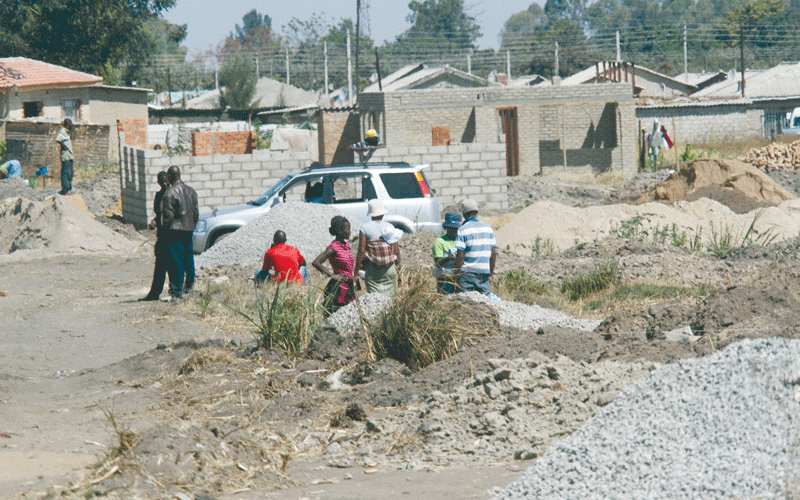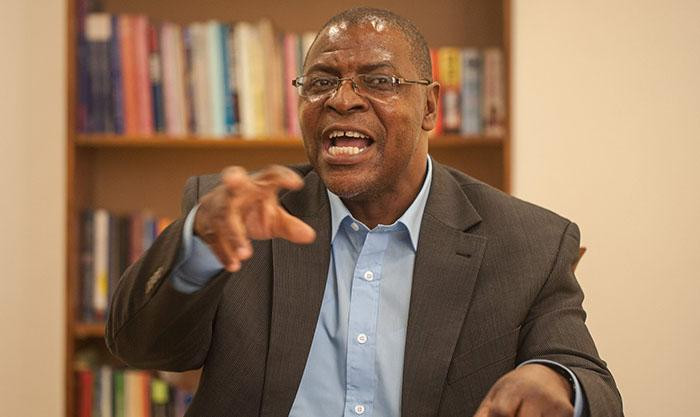
By Peter Makwanya
This week will be loaded on the international environmental calendar. First, there will be the International Day of Forests on March 21, followed by the World Water Day on March 22 and the World Meteorological Day on March 23 2021.
All the three international events of world appeal, scope and connection will be held in a single week. These are being commemorated against the background of increasing water scarcities and pollution, and rapid forest losses as a result of human activities and climate change.
This has left poor communities who rely on forest resources and natural ecosystemic services heavily exposed.
Not to be outdone are multinational logging companies from far afield in association with local proxies in African countries threatening to strip the African forests naked for a song.
The African forests are at the centre of attraction due to their diverse tree species of high value, natural beauty, serenity and fresh water sources, home to a wide range of flora and fauna that has not escaped the coveted eyes of the intruder for centuries.
Forests and water form the natural wonders of the environment around the world from the Amazon rainforests, vast tropical wonders of central Africa, eastern and southern Africa, the Congo Basin, with the majestic Congo, Zambezi and Nile rivers snaking through the African virgin forests, delivering fresh water.
These commemorations could not have come at a better time than when some expansionist and environmental injustices are taking place in the Okavango Delta, from oil and natural gas explorations threatening one of the world’s finest natural wonders.
- Chamisa under fire over US$120K donation
- Mavhunga puts DeMbare into Chibuku quarterfinals
- Pension funds bet on Cabora Bassa oilfields
- Councils defy govt fire tender directive
Keep Reading
This is also home to the world’s vast and diverse wildlife and fresh water sources.
It is during these important commemorations that the presence of the greedy multinationals in the Okavango Delta should be shamed.
According to Cuthbert and Taylor, in 2014, a group of African scientists met in Tanzania and estimated that Africa’s ground water reserves may be more resilient to climate change than previously thought.
Groundwater reserves in Africa are believed to be 20 times larger than the water stored in lakes and reservoirs above the ground.
These are the fresh water stores that flow from the rocks and sediments beneath the earth’s surface.
They are a vital source of drinking water for the Sub-Saharan Africa, where groundwater is often the only year-round supply of fresh water in rural areas.
As the world commemorates these important events on the international environmental calendar, Africa is threatened, both internally and from the outside.
Internally, the continent is replete with unsustainable mining practices which threaten water resources through unregulated use of toxins and industrial chemicals that also lead to water bodies being contaminated or drying.
External capital comes to destroy forests without any attempts to regenerate while also as what is happening in the Okavango, wildlife would be threatened and driven away from their water sources, thereby conflicting with local communities.
As has already been projected, the Sub-Saharan Africa, even without contributing much to global warming, is bound to feel the major negative impacts of climate change due to water scarcities, floods, droughts and severe weather patterns, among others.
This is a wake-up call for the continent to stay in a state of preparedness through forest and water conservation.
In this regard, the best way to conserve the available water is to plant more trees, protect available forests, create carbon sinks and keep moisture underground.
Healthy forests need water to flourish and support a wide range of creatures living in the forests and beneath.
For trees to flourish, the underground water reservoirs should stay charged, so that they can draw water from the ground, release it into the air as water vapour and back as rain or dew onto the ground.
All these benefits would be missed if countries don’t protect their forests and water sources and this cycle will never be realised again.
Communities, including State and non-State actors need to practise sustainable forest and water management including landscape restorations as well as biodiversity conservation and agroforestry in order to benefit both people and nature.
Ongoing deforestation in Africa through agricultural and human settlement expansions, building and farming on wetlands can affect the quality of water several kilometres away.
For these reasons, it is the role of climate change communication experts to help with context-specific communication tools and pathways in order to close inherent knowledge and information gaps and enhance the understanding of the relationship between forests and water connection.
As citizens and communities in developing countries, it is significant that people engage in projects that help to curb massive deforestation and land degradation in order to stop moisture stress. In a changing climate, forest cover helps to trap moisture and slow down global warming.
The connection of water and forests helps to avoid overuse, misuse and pollution of water and forest resources. In this regard, countries can also practise traditional forest governance practices through harnessing ecological traditional knowledge or indigenous knowledge systems.
With the impacts of climate change raging, these commemorations serve to remind the communities around the world that Sustainable Development Goals cannot be realised when the rate of biodiversity loss is too high.
Climate change adaptation programmes need to be accelerated in order to keep on increasing forest cover, food production, regulate floods and increase community resilience.
It is also significant to recognise that, not only human beings have human rights, forests and water rights have to be observed too. As countries commemorate these special occasions, it is significant to situate local communities at the heart of forest and water governance processes in order for them to own the process.
When communities are left out of the discourse, their right to participate would have been taken away, meaning that they are as good as non-existent.











